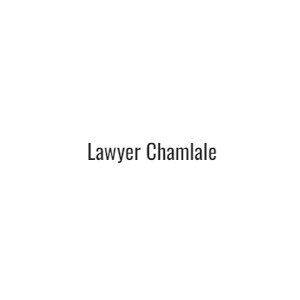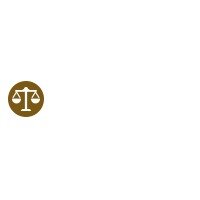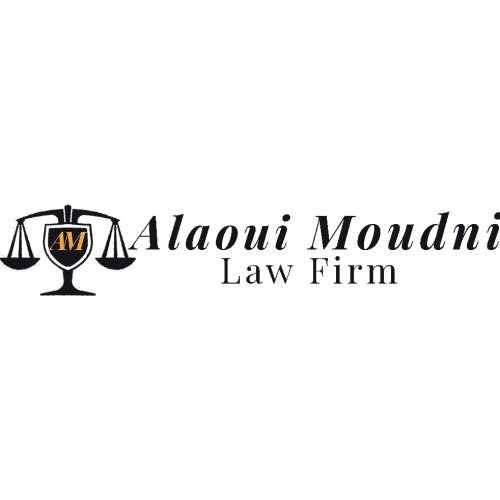Best Project Finance Lawyers in Morocco
Share your needs with us, get contacted by law firms.
Free. Takes 2 min.
Or refine your search by selecting a city:
List of the best lawyers in Morocco
About Project Finance Law in Morocco
Project finance in Morocco is a specialized legal and financial practice that involves securing funding for long-term infrastructure or industrial projects based on the projected cash flows of the project rather than the balance sheets of the project sponsors. Over the last decade, Morocco has experienced significant growth in sectors like renewable energy, transportation, water supply, and tourism, making project finance increasingly important. Moroccan project finance transactions generally involve multiple stakeholders such as private investors, government entities, lenders, and contractors. Local legal frameworks aim to balance risk and reward among these parties and ensure compliance with both Moroccan and international standards.
Why You May Need a Lawyer
Project finance agreements in Morocco are highly complex and can present significant risk if not structured correctly. Legal professionals are often essential in navigating issues such as contract negotiation, risk assessment, regulatory compliance, and dispute resolution. Situations where you may need a lawyer include:
- Structuring project finance deals between multiple local and international parties
- Interpreting and negotiating loan agreements and security packages
- Conducting due diligence on project assets and entities
- Securing licenses, permits, and approvals from public authorities
- Drafting and reviewing contracts for construction, operation, and maintenance
- Managing risk allocation through contractual terms and insurance policies
- Dealing with changes in regulations or unforeseen events impacting the project
- Resolving disputes through negotiation, arbitration, or litigation
By working with a lawyer, you can better protect your interests and ensure your project complies with Moroccan law and best practices.
Local Laws Overview
Moroccan project finance is governed by a framework that includes general commercial law, banking regulations, public-private partnership (PPP) laws, sector-specific laws, and foreign investment rules. Key aspects include:
- Public-Private Partnership (PPP) Law: Law 86-12 governs PPPs, defining requirements for project identification, bidding, contract approval, risk sharing, and dispute resolution.
- Secured Transactions: Moroccan law allows lenders to take security over project assets and revenues. The process for creating and registering security interests is governed by the Commercial Code and other specific statutes.
- Foreign Investment: Foreign investors are generally permitted to participate in project finance structures and to repatriate profits, subject to certain reporting and regulatory requirements.
- Exchange Controls: The Moroccan Exchange Office regulates foreign currency flows and international payments, which are relevant for cross-border project finance deals.
- Sectoral Laws: Special rules apply to energy, water, transportation, and other regulated sectors involving public authorities.
- Dispute Resolution: Contracts often provide for arbitration, sometimes under international rules, but Moroccan courts retain jurisdiction over certain issues.
Project finance in Morocco typically requires coordination with multiple regulatory bodies and adherence to evolving national policy priorities.
Frequently Asked Questions
What is project finance and how does it differ from corporate finance?
Project finance structures funding around the cash flow of a specific project and often involves off-balance sheet financing, while corporate finance relies on the company's general balance sheet and assets. In project finance, lenders primarily depend on the success of the project itself for repayment.
What types of projects commonly use project finance in Morocco?
Projects in energy production (especially renewables), transportation, water and sanitation infrastructure, telecommunication, tourism, and public facilities often use project finance due to their large scale and capital requirements.
Are foreign investors permitted to participate in Moroccan project finance deals?
Yes, foreign investors can participate. There are generally few restrictions, but transactions must comply with Moroccan foreign investment laws and may require notifications to authorities or the Central Bank.
What security can lenders take in a typical Moroccan project finance transaction?
Lenders usually take security interests in project assets, project accounts, shares in the project company, and assignment of contractual rights and receivables. Formal registration and proper documentation are critical for enforceability.
How are public-private partnerships (PPPs) regulated in Morocco?
Law 86-12 establishes the framework for PPPs in Morocco, prescribing bidding procedures, contractual content, risk allocation, and government oversight for projects involving public authorities.
Do project finance agreements in Morocco need to be governed by Moroccan law?
While parties are often free to agree on the governing law, Moroccan law will usually apply to issues involving public policy, property rights, regulatory matters, and certain security interests. It's common to blend Moroccan and international legal standards.
Is it possible to resolve project-related disputes through international arbitration?
Yes, many project finance contracts include arbitration clauses, sometimes using rules from international bodies. However, certain matters may need to be resolved in Moroccan courts depending on their nature.
What government bodies are typically involved in project finance transactions?
Depending on the sector, key bodies can include the Ministry of Economy and Finance, sectoral ministries (such as Energy, Interior, and Equipment), the Moroccan Agency for Sustainable Energy (MASEN), and the Exchange Office for foreign currency matters.
Are there specific environmental or social requirements for project finance?
Large projects often require environmental and social impact assessments. Compliance with local regulations and international standards (when applicable) is generally mandatory for obtaining permits and financing.
What are typical steps in structuring a project finance transaction in Morocco?
Typical steps include project identification, feasibility studies, risk allocation, establishment of a project company, negotiation of finance and security documents, obtaining licenses and approvals, financial closing, and ongoing compliance management.
Additional Resources
The following resources and organizations may provide helpful information or assistance regarding project finance in Morocco:
- Moroccan Ministry of Economy and Finance: Provides oversight for public investment and PPPs.
- Moroccan Agency for Sustainable Energy (MASEN): Responsible for large-scale renewable energy projects.
- Exchange Office (Office des Changes): Regulates foreign currency operations and investment flows.
- Moroccan Investment and Export Development Agency (AMDIE): Supports local and foreign investment.
- Sectoral Ministries: Such as the Ministry of Energy, Ministry of Equipment, Transport, Logistics and Water, and Ministry of the Interior.
- Chambers of Commerce and Professional Associations: These entities can provide networking and business-related guidance.
- International financial institutions: The European Bank for Reconstruction and Development (EBRD) and International Finance Corporation (IFC) are active financiers in Morocco.
Next Steps
If you are considering or involved in a project finance transaction in Morocco, consider the following steps:
- Clearly identify the objectives, scope, and stakeholders of your project.
- Gather relevant financial, technical, and legal documentation.
- Consult with a qualified Moroccan legal professional who has experience in project finance and your specific sector.
- Seek advice on regulatory requirements, risk allocation, and contract structuring early in the process.
- Engage in preliminary discussions with relevant government bodies and regulatory agencies.
- Assess potential financing sources, including banks, financial institutions, and potential investors.
- Work closely with your legal advisor to draft and negotiate contracts that protect your interests and comply with applicable laws.
- Ensure ongoing legal compliance and be prepared to address issues such as amendments, renewals, and dispute resolution.
Taking these steps with the support of experienced professionals will help ensure a smoother and more successful project finance process in Morocco.
Lawzana helps you find the best lawyers and law firms in Morocco through a curated and pre-screened list of qualified legal professionals. Our platform offers rankings and detailed profiles of attorneys and law firms, allowing you to compare based on practice areas, including Project Finance, experience, and client feedback.
Each profile includes a description of the firm's areas of practice, client reviews, team members and partners, year of establishment, spoken languages, office locations, contact information, social media presence, and any published articles or resources. Most firms on our platform speak English and are experienced in both local and international legal matters.
Get a quote from top-rated law firms in Morocco — quickly, securely, and without unnecessary hassle.
Disclaimer:
The information provided on this page is for general informational purposes only and does not constitute legal advice. While we strive to ensure the accuracy and relevance of the content, legal information may change over time, and interpretations of the law can vary. You should always consult with a qualified legal professional for advice specific to your situation.
We disclaim all liability for actions taken or not taken based on the content of this page. If you believe any information is incorrect or outdated, please contact us, and we will review and update it where appropriate.
Browse project finance law firms by city in Morocco
Refine your search by selecting a city.

















